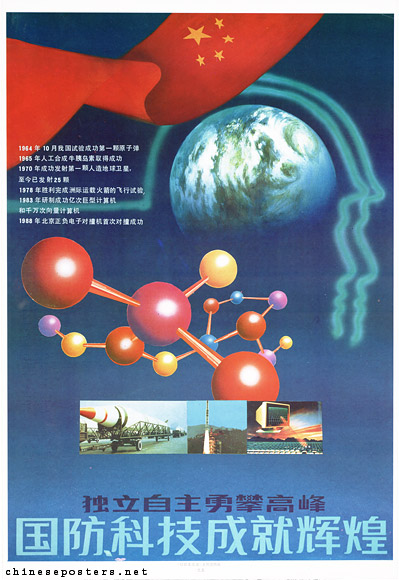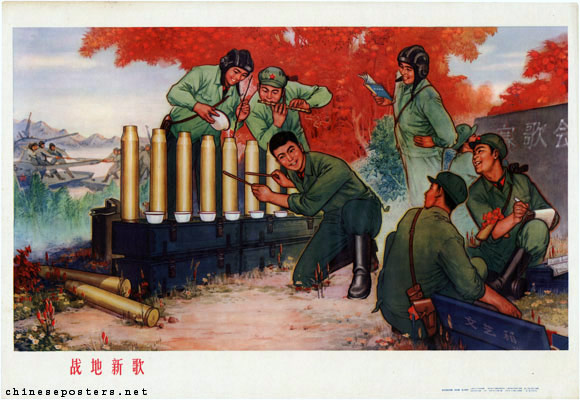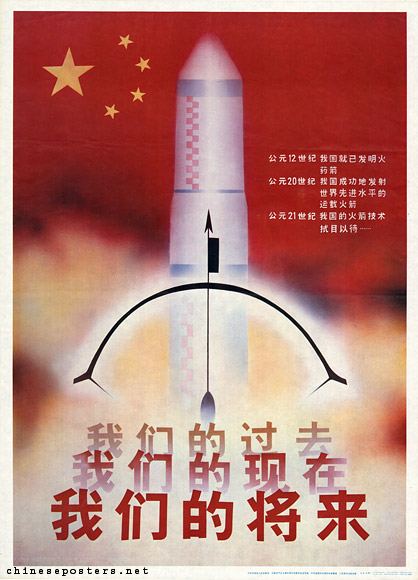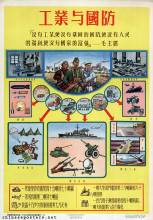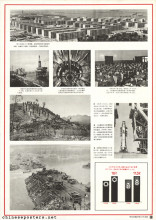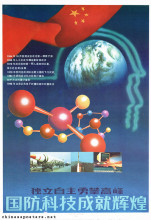The achievements in national defense science and technology are glorious, 1989
The People’s Liberation Army must have one of the most extensive military industrial complexes in the world, employing some 700,000 employees in about 10,000 enterprises. It has always provided for its own food and other needs, including military hardware. This translates into extensive farm holdings, textile plants and industrial facilities. The decentralization of military production to the interior that was decided upon in the early 1960s, the so-called "Third Front policy", was an attempt to make every region completely self-sufficient in military needs, leading to a massive squandering of funds and resources. It has turned the PLA in the eyes of some specialists into the world’s largest military museum, or into a junkyard army.
New songs on the battlefield, 1975
The PLA’s industrial base became an excellent point of departure in the 1980s, when Deng Xiaoping’s policy of economic reform forced the military more or less to finance its own modernization, due to a relative decline in the official budget. By conversion of part of its industries to civilian production, the Army was able to supplement its income. As a result of the Open Door policy, China was able to do extensive window-shopping abroad, thus getting acquainted with the world’s advanced weaponry. In order to earn funds to acquire technology for domestic production, China became a major player in the world of conventional and nuclear arms sales through such corporations as Norinco and Poly Inc. Joint ventures were another source of military technology. Primary weapons exports include field artillery and anti-aircraft artillery, including rocket launchers and short-range missiles, armored personnel carries and tanks. China’s advantage in the world market is mainly that its technology is appropriate for Third World customers, including maintenance, and that its level of prices is lower than that of other arms suppliers.
Our past, present and future, 1987
The PLA MIC activities are not merely limited to military ventures: the production of consumer durables, property development and the hotel industry are also the Army’s business nowadays. Coupled with the consumer boom in China, the erosion of security that the old system provided, and the rising inequality of income, these commercial activities have contributed to an alarming rise of corruption in the Army. As a result, the image of the PLA has suffered enormously. In 1998, the Party demanded that the PLA withdraw from non-military commercial activities, but it remains unclear to what extent this order has been heeded.
Flemming Christiansen & Shirin Rai, Chinese Politics and Society - An Introduction (London etc.: Prentice Hall 1996)
Andrew J. Nathan & Robert S. Ross, The Great Wall and the Empty Fortress - China’s Search for Security (New York etc.: W.W. Norton & Company 1997)
